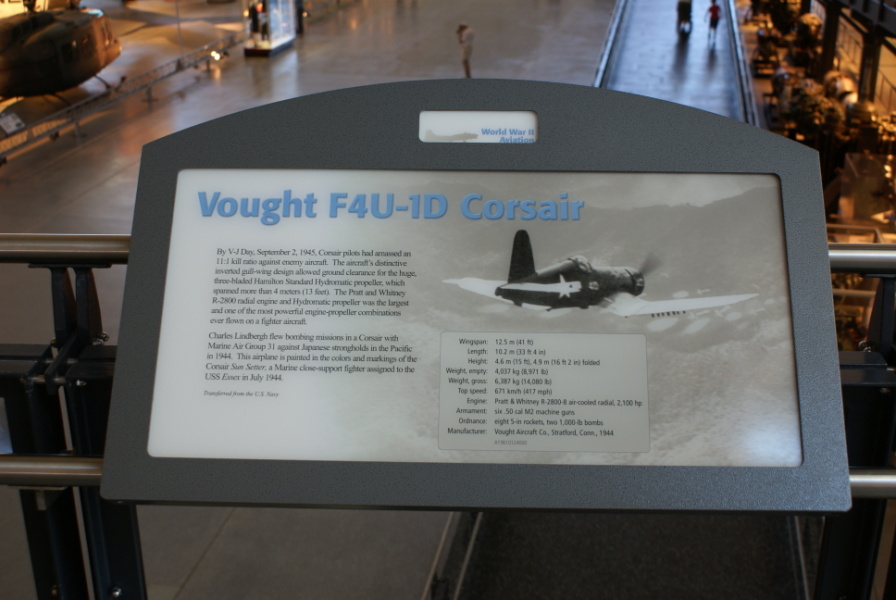| Prev |
heroicrelics.org Udvar-Hazy Center Site Index Corsair Gallery |
Next |
dsc32226.jpg
The sign accompanying the Corsair. It reads
Vought F4U-1D Corsair
By V-J Day, September 2, 1945, Corsair pilots had amassed an 11:1 kill ratio against enemy aircraft. The aircraft's distinctive inverted gull-wing design allowed ground clearance for the huge, three-bladed Hamilton Standard Hydromatic propeller, which spanned more than 4 meters (13 feet). The Pratt and Whitney R-2800 radial engine and Hydromatic propeller was the largest and one of the most powerful engine-propeller combinations ever flown on a fighter aircraft.
Charles Lindbergh flew bombing missions in a Corsair with Marine Air Group 31 against Japanese strongholds in the Pacific in 1944. This airplane is painted in the colors and markings of the Corsair Sun Setter, a Marine close-support fighter assigned to the USS Essex in July 1944.
Transferred from the U.S. Navy
Wingspan: 12.5 m (41 ft) Length: 10.2 m (33 ft 4 in) Height: 4.6 m (15 ft), 4.9 m (16 ft 2 in) folded Weight, empty: 4,037 kg (8,971 lb) Weight, gross: 6,387 kg (14,080 lb) Top speed: 671 km/h (417 mph) Engine: Pratt & Whitney R-2800-8 air-cooled radial, 2,100 hp Armament: six .50 cal M2 machine guns Ordnance: eight 5-in rockets, two 1,000-lb bombs Manufacturer: Vought Aircraft Co., Stratford, Conn., 1944 A19610124000

| Time picture taken | Wed Jun 20 15:09:36 2007 |
| Location picture taken |
Catwalk Boeing Aviation Hangar Udvar Hazy Center Chantilly, VA |
| Prev |
heroicrelics.org Udvar-Hazy Center Site Index Corsair Gallery |
Next |